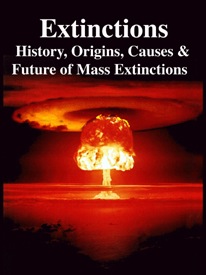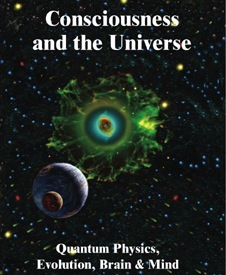|
|
|||||||||||||||
Journal of Cosmology, 2010, Vol 7, 1791. JournalofCosmology.com, May, 2010 Famed astrophysicist Dr. Stephen Hawking has voiced concern about the dangers, he believes, are posed by alien predators who may arrive in giant space ships, to conquer, enslave, destroy, colonize, and voraciously exploit the resources of Earth. According to Hawking:
12. Uninvited Guests, Peter Sturrock, Ph.D., Emeritus Professor of Applied Physics, Stanford University, Stanford, CA, USA. Dr. Stephen Hawking has recently speculated about the danger that Earth may receive uninvited visitors from outer space. He raises an important issue that needs to be taken seriously. However, he does not begin at the beginning: Hawking neglects to ask whether the Earth has already received such visitors. This is a question that I have thought about for some time, and I find that it does not admit of a simple, definitive answer. One can find evidence that is suggestive of visitation, but hard evidence is either elusive or non-existent. Nevertheless, if the scientific community is going to start thinking honestly and open-mindedly about alien visitation, it would be unscientific to ignore any potentially relevant evidence, including so-called “UFO” reports. This will not be an easy undertaking: if we give credence only to reports that make sense to us and that describe phenomena we can readily understand in terms of our current scientific knowledge, we may well be throwing out the baby with the bathwater. Arthur C. Clarke’s third law is that “Any sufficiently advanced technology is indistinguishable from magic.” So maybe we need to deliberately seek out phenomena that do not make sense, and are incompatible with our current scientific knowledge. No one said that revolutionary science should be easy. In 1975, I carried out a survey of the membership of the American Astronomical Society to solicit opinions concerning the so-called “UFO” phenomenon, focusing on two questions: (1) Did the respondent consider that the topic deserved scientific investigation? and (2) Had the respondent ever witnessed an event that seemed related to so-called UFO reports? Most respondents replied positively to the first question, and 5 percent responded positively to the second question. (For details, see Sturrock 2009). In 1997, at the initiative of the late Laurance S. Rockefeller, I organized a review of possible physical evidence. This event involved a panel of nine distinguished scientists, co-chaired by Dr. Von Eshleman and Dr. Thomas Holzer, and eight experienced UFO investigators (Sturrock 1999). The review panel was understandably and appropriately cautious in formulating their conclusions, but they made the following observations:
The UFO problem is not a simple one, and it is unlikely that there is any simple universal answer, The panel also offered the following comment concerning the highly influential “Condon Report” (1969). Condon had asserted that “nothing has come from the study of UFOs in the past 21 years that has added to scientific knowledge,” and that “further extensive study of UFOs probably cannot be justified in the expectation that science will be advanced thereby.” The Rockefeller Panel agreed with the first conclusion, but not with the second, writing: “There always exists the possibility that investigation of an unexplained phenomenon may lead to an advance in scientific knowledge.” Which may perhaps—with some license—be paraphrased as “Aliens or no aliens, we have a problem on our hands.” Reflecting on Hawking’s concerns about “alien predators who may arrive in giant space ships to conquer… and to exploit the resources of Earth,” I would suggest that aliens may not all be the same. Any species that has a secure and happy home may well have a benevolent attitude towards our adolescent civilization on Earth, but any species that is on a dying planet, and is desperately trying to find somewhere else to live, may not have our best interests at heart. To look on the bright side - advanced civilizations may have a code of ethics that would give us some protection. But—to look on the dark side—they may not. If we do still have a choice of trying to make contact with alien civilizations (wherever they may be) or keeping quiet, my personal recommendation would be the latter. Dr. Hawking has raised provocative questions that deserve careful study including theoretical analyses and other forms of speculation. However, we should also reflect carefully on his basic but unstated assumption that Earth has not already received uninvited guests.
Condon, E. U., and Gillmor, D.S. (1969). Scientific Study of Unidentified Flying Objects, Bantam, New York. Sturrock, P. A. (1999). The UFO Enigma, Warner Books, New York. Sturrock, P. A. (2009). A Tale of Two Sciences: Memoirs of a Dissident Scientist. Exoscience.
|
|
|
|
|
|
|
|
 Colonizing the Red Planet ISBN: 9780982955239 |
 Sir Roger Penrose & Stuart Hameroff ISBN: 9780982955208 |
 The Origins of LIfe ISBN: 9780982955215 |
 Came From Other Planets ISBN: 9780974975597 |
 Panspermia, Life ISBN: 9780982955222 |
 Explaining the Origins of Life ISBN 9780982955291 |












